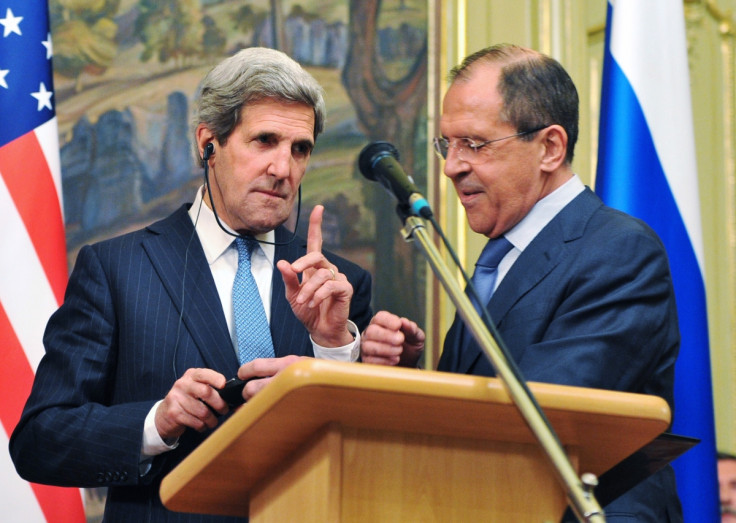Syria peace talks: US not sure if John Kerry will meet Sergei Lavrov in Geneva on 8 September
Washington says US is 'not there yet', but reaffirms Kerry is committed towards resolving issues in Syria.
US Secretary of State John Kerry and Russian counterpart Sergei Lavrov could meet in Geneva on Thursday (8 September) to outline a peace deal for Syria, Moscow has said.
However, US authorities did not confirm the announcement and said "they hope to meet very soon". US State Department spokesperson Mark Toner said: "We're not there yet. The secretary remains committed to continuing efforts to try and resolve the outstanding issues in order to reach an arrangement on Syria ... but we won't agree to an arrangement that does not meet our core objectives."
He added, "We have not been able to reach a clear understanding on a way forward. I can't say there is a big hope for success, we're just continuing to work at it."
Kerry and Lavrov had met on 5 September and were hoping to announce a peace deal for Syria at the G20 summit in Hangzhou, China, but reportedly failed to reach an understanding on how to proceed. The US hopes that Russian President Vladimir Putin supports the deal to reinstate ceasefire that the UN Security Council announced in February, which eventually fell apart. The US wants fresh guarantees that Moscow will sanction Syria if it violates terms of the ceasefire, to which Syrian air force retorted and said it will not tolerate being grounded on its own sovereign territory.
Kerry has also faced criticism for attempting to make a deal with Russia, which supports Syrian President Bashar al-Assad, but the US Secretary of State explained that he views the talks as an opportunity to end the five-year civil war in the Arab nation. Speaking at the G20 Summit, Obama said that talks have been complicated as "gaps of trust" exist between Moscow and Washington.
Syria's main opposition group, the High Negotiations Committee (HNC), on Wednesday said that it would reject any deal agreed between Russia and the US that is different from the transition programme it had proposed. According to the Guardian, it is the most cohesive transition plan released by the body until now, and allows a six-month negotiation period resulting in the formation of a leading transitional governing body. It will be responsible for running Syria for 18 months, in the lead up to UN sponsored local, parliamentary and presidential elections.
Meanwhile, in the negotiations between US and Russia, there have been talks of a political transition, but there is no clarity on the future of Assad's government.

© Copyright IBTimes 2025. All rights reserved.





















